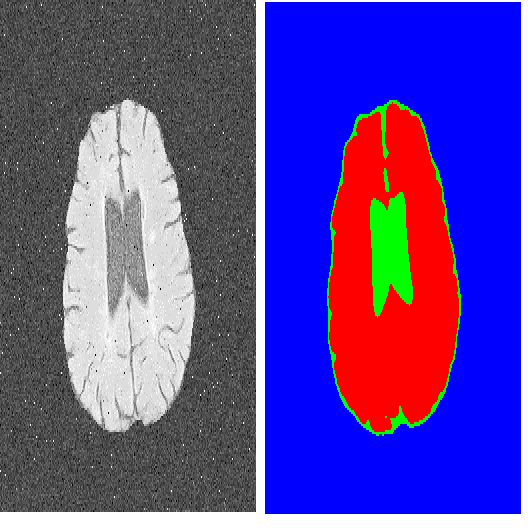Recent advancements in the field of magnetic resonance imaging (MRI) have enabled large-scale collaboration among clinicians and researchers for neuroimaging tasks. However, researchers are often forced to use outdated and slow software to anonymize MRI images for publication. These programs specifically perform expensive mathematical operations over 3D images that rapidly slow down anonymization speed as an image's volume increases in size. In this paper, we introduce DeepDefacer, an application of deep learning to MRI anonymization that uses a streamlined 3D U-Net network to mask facial regions in MRI images with a significant increase in speed over traditional de-identification software. We train DeepDefacer on MRI images from the Brain Development Organization (IXI) and International Consortium for Brain Mapping (ICBM) and quantitatively evaluate our model against a baseline 3D U-Net model with regards to Dice, recall, and precision scores. We also evaluate DeepDefacer against Pydeface, a traditional defacing application, with regards to speed on a range of CPU and GPU devices and qualitatively evaluate our model's defaced output versus the ground truth images produced by Pydeface. We provide a link to a PyPi program at the end of this manuscript to encourage further research into the application of deep learning to MRI anonymization.
翻译:磁共振成像(MRI)领域最近的进展使得临床医生和研究人员得以在神经成像任务方面进行大规模合作,然而,研究人员往往被迫使用过时和缓慢的软件,对磁共振图像进行匿名出版。这些方案具体地对3D图像进行昂贵的数学操作,这些图像迅速减缓匿名速度,作为图像量的增加。在本文中,我们引入了Deep Defacer,这是对磁共振匿名化的深入学习的应用,它使用简化的 3D U-Net 网络将MRI 图像的面部区域遮盖起来,其速度大大高于传统的脱身份软件。我们从大脑开发组织(IXI)和国际脑映像联合会(ICBM)对MRI图像进行了深 Defacer 培训,并用基线 3D U-Net 模型模型对Dice、 回忆和精确分数进行了定量评估。我们还评估了Deep Defacer 与 Pydeface(PPPUP) 的传统变形应用, 以及从质量角度评估了我们模型的解剖面输出与地面研究程序之间的进一步链接。





